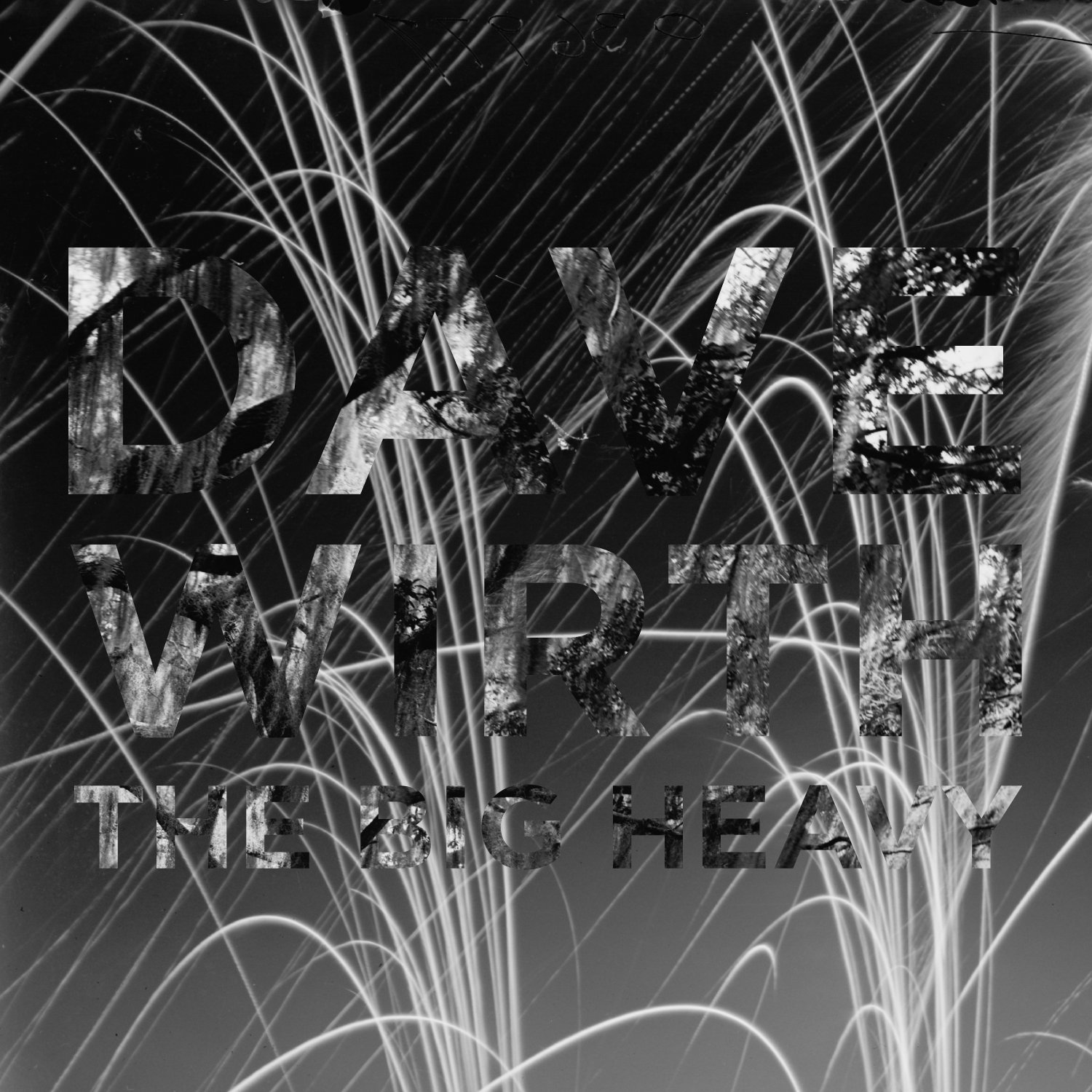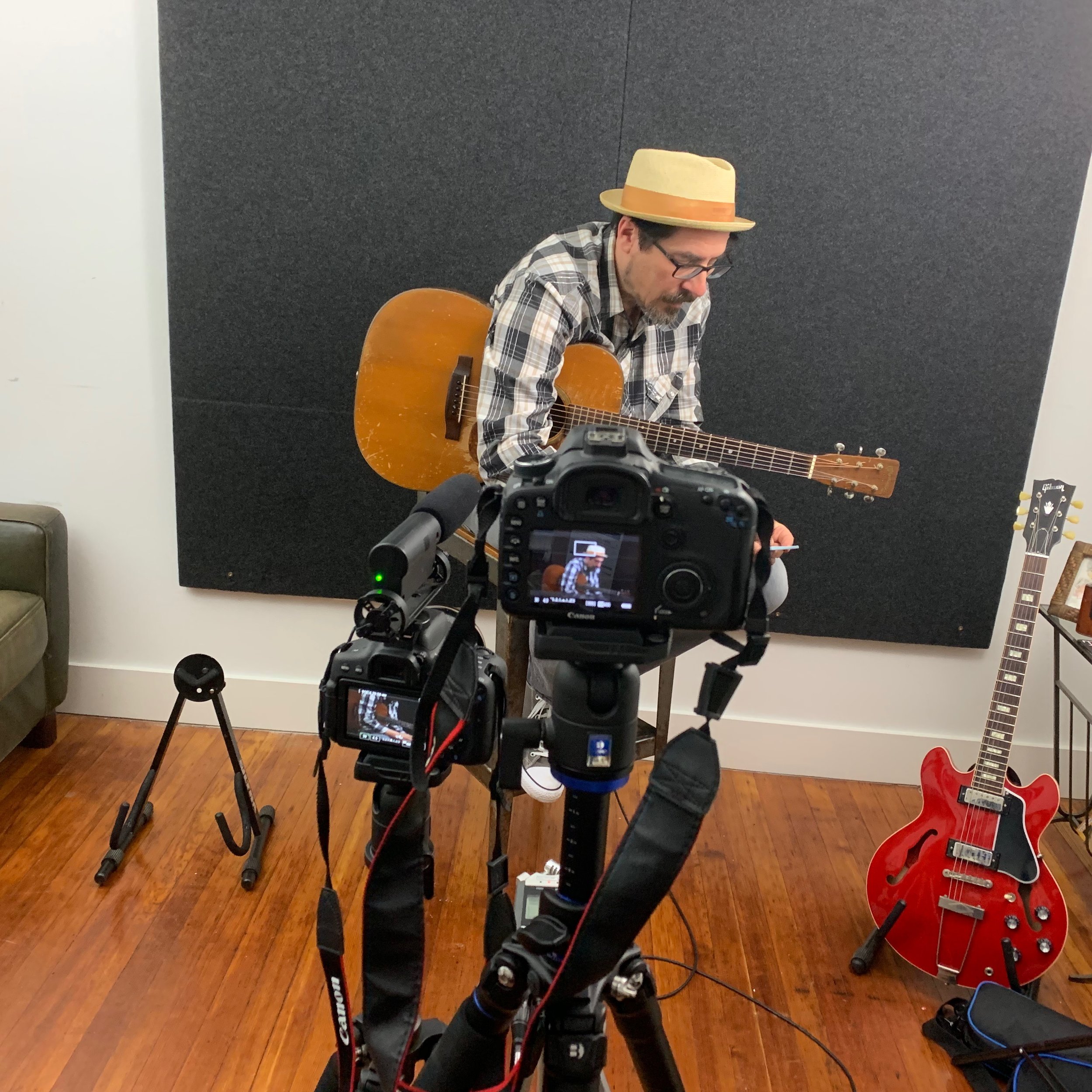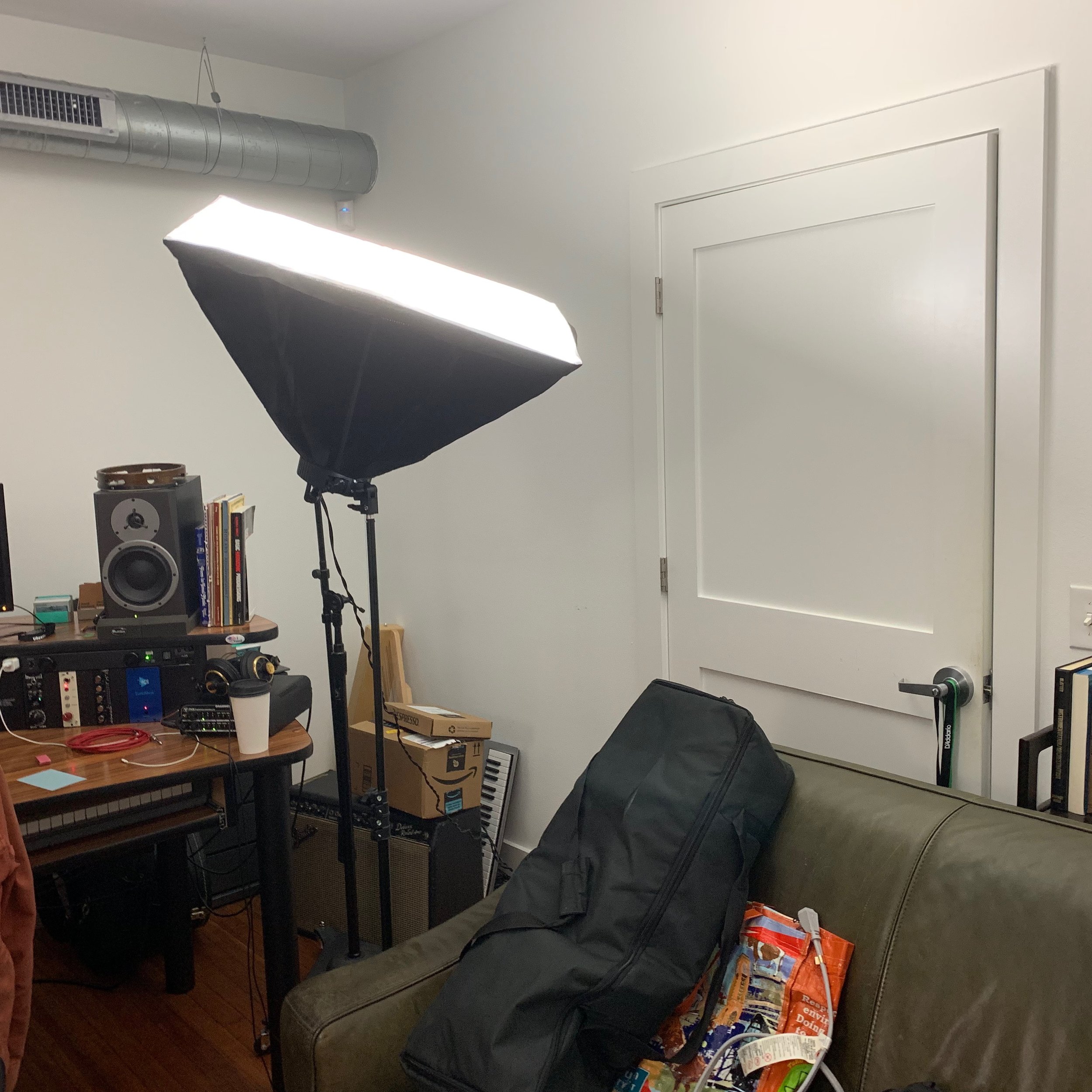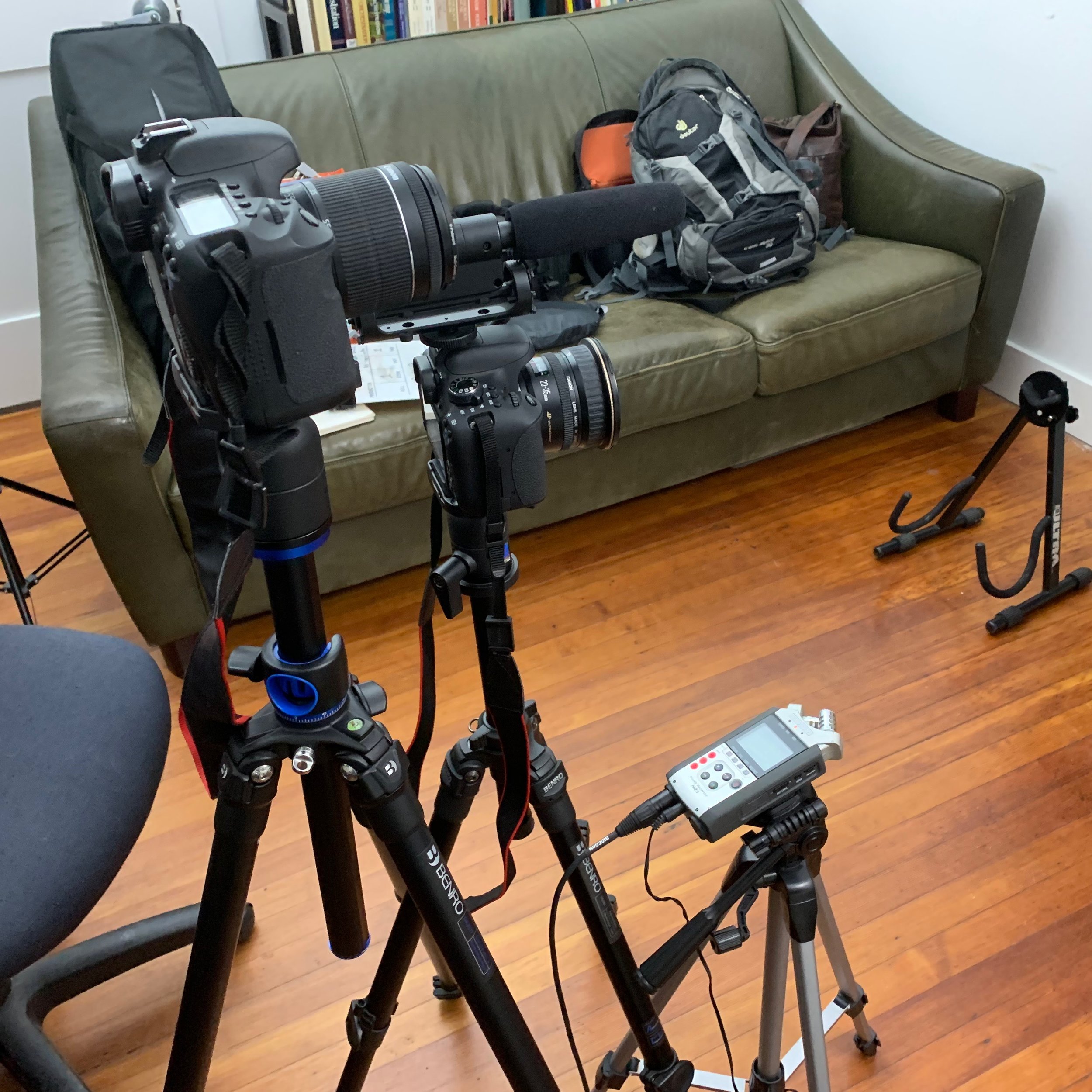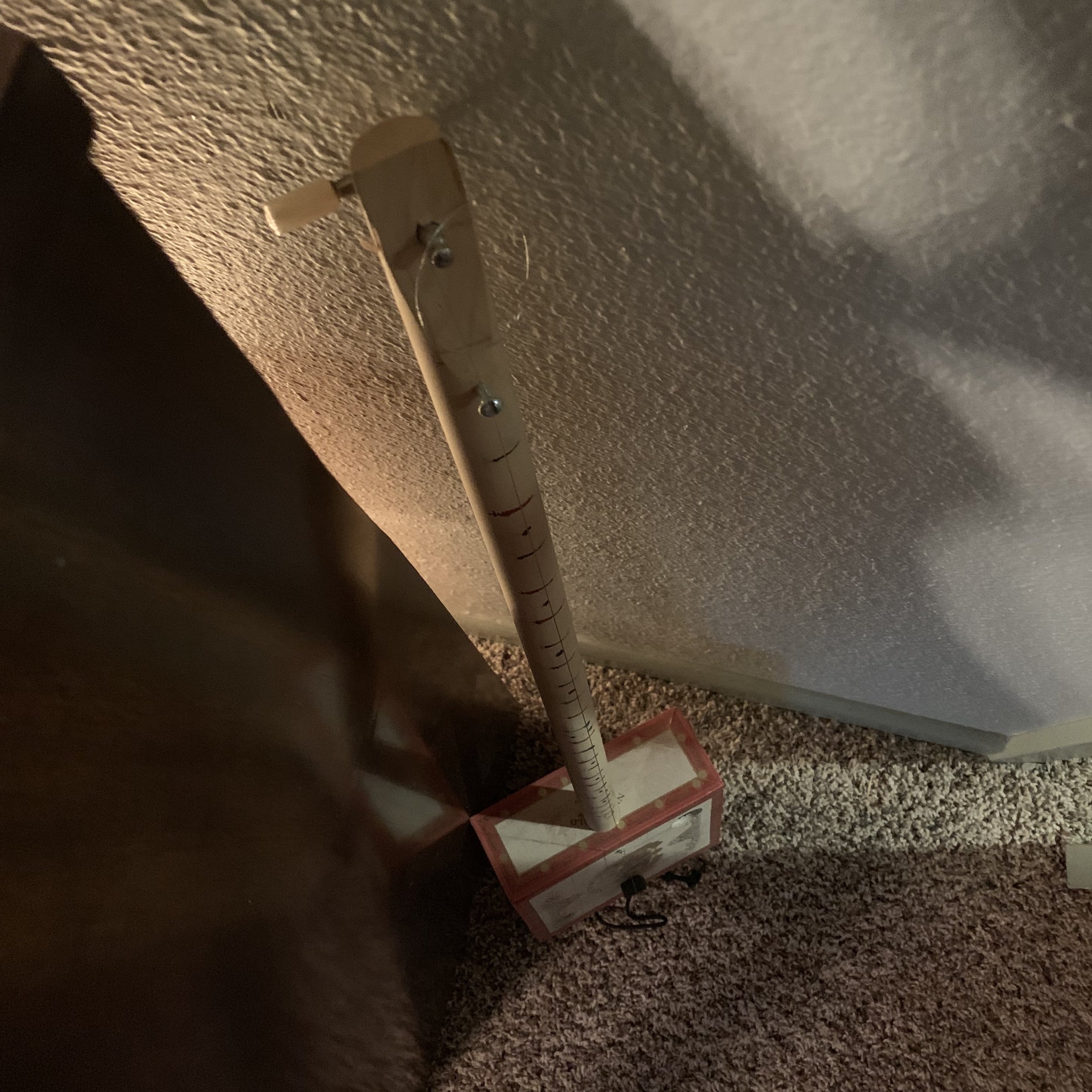I can’t imagine a better name for this effect:
My friend Myrriah Gossett reached out recently to see if I were interested in working on a short, 4 minute podcast contest, and I quickly agreed. Myrriah is one of those producers who can get things done fast, and beyond that is totally relatable and fun to hang with.
After receiving the theme for this year’s RadioRace with KCRW Where The Sun Don’t Shine, we were able to brainstorm and get permission to interview Jeri D. Jeri has an intense story, one that was incredibly difficult to distill to just four minutes. I think we did a good job presenting Jeri’s story.
I don’t want to give a spoiler, but Jeri talks about the time of his life he found out that he had prostate cancer, and he talks about what he had to do to stay alive. Jeri’s story is compelling, to say the least:
Like the music in this story?
Here it is, and for a little while it’s on sale:
Music composed for the 2019 RadioRace sponsored by KCRW in Los Angeles.
My morning is incomplete without coffee. I choose my beans wisely, I use a burr grinder, I use an aeropress, and top it with organic whipping cream.
When I’m in a new town, trying to find my morning cup, I have a two simple rules to follow to assure that I get the best coffee possible. The first:
Beware of the coffee shop that offers 3 different prices of either lattes or cappuccinos.
I think this is Pareto’s Principle at work. When coffee shops limit themselves to making one single latte or cappuccino size, they get the ratio of espresso and milk correct, every time. Coffee shops that don’t do this are ones that haven’t dialed in the exact taste of the coffee they wish to present, or probably just don’t really care.
My second rule is this:
Beware any coffee shop if they have more food options than coffee options.
Again, they won’t be as focused on getting that ideal taste in coffee. They’ll have a lot of food options though, and maybe they are good. But the coffee? Nope. Probably not very good.
To me, just about all drip coffee tastes the same, so I always go for the smallest drip coffee at a coffee shop I’m wary of.
But, if you find yourself at a coffee shop that has just one size for a latte, cap, or cortado? Don’t be scared. They probably care a lot about making a tasty morning beverage. Get it! It’s most likely heavenly.
When my father died, my mom gave me his favorite pen: A Mont Blanc Meisterstück, issued by his employer for his dedicated work to the company.
Lemme tell you: This pen writes like a dream. I write about three pages of goop everyday (this habit works wonders for creativity), so I was surprised that the ink lasted for a year or so on the original refill. But, when it was gone, I had to replace it. Enter our villain: Monteverde refills for Mont Blanc.
I bought some Monteverde refills to keep the party going, and I was immediately taken by surprise about how hard I had to push down on the pen to make the ink flow. I was annoyed by how often the ink would stop flowing, mid word, but would pick up if I twirled the pen about 45 degrees. I often cursed out loud, about my writing utensil. Yeah, I went there.
I put up with this nonsense for three years without thinking there was an alternative. Eventually I got fed up and bought the real thing: Mont Blanc pen refills by Mont Blanc.
Within writing two sentences, my hand immediately relaxed into writing again. I’ve not had a single hand cramp in the past week. The sentences have flowed easier. My enjoyment of writing is back to its original state. The rollerball never loses traction, the sentences and words flow on.
What can I say? Though expensive, the refill for a pen matters. Or in other words: When you go Mont Blanc, you can never go back.
I have been committing to memory all of the transpositions of the orchestra. My intent is to begin writing in their transposed pitches as opposed to concert key. I’ve started with the flute family.
I called the Db Piccolo the Db Pickle, and the C Piccolo the C Pickle.
Off to the coffee pot…
Part of my work as a musician requires waiting. Reaching out to people I’d love to work with, reminding them I’m still alive. Working on parts of my administrative system for optimal workflow management. Or simply, reminding the great mystery that I still love composing music and it will make the world a better place
Sometimes, in the thick of these moments of stillness of projects, times when things aren’t exactly working according to plan (ha! Plans!), I’m reminded that it’s okay to be in the creative intuitive space where it’s more important to go back and reorganize things that desperately need reorganization. If you’re a musician and you’re reading this, I wanted to share a couple of ideas that can help make a slow time a bit faster.
Join a performing rights organization and register all of your works.
Copyright an album that needs that official stamp of ownership.
Learn about something new, like synthesis, orchestration, or perhaps how to develop a melody.
Reach out to friends who know you and your work ethic.
Do some cold calling. Though this isn’t for everyone, I can say without any doubt that nothing stirs the pot quite like a blast of cold calls to people you’d love to work with.
As this period of stillness is coming to an end this summer, I wish you all the best and may the projects come rolling in.
Overheard by a musician working the cash register at a local Austin shop:
I hear the same old stuff coming from Nashville, all the time. Three chords, same old pile of garbage. I could write that in an instant and make millions.
I hate to point this out, and maybe it’s just me who’s thinking this, but what’s stopping you?
I was a little shocked and silent nonetheless. The person he was talking to stopped talking too; maybe we were thinking the same thing?
…that maybe it’s better to just engage and see where that leads?
I was just musing: Is the fact that most musical territory has already been explored necessarily a bad thing?
The argument many people have with music is something like, “That’s not original. Someone else has already done that.” Well, no shit Sherlock.
Let’s take an obscure example: Coltrane practiced Slonimsky’s Thesaurus of Scales and Melodic Patterns towards the latter part of his life. He explored it deeply, and had he lived longer he could have explored it more fully. However, Coltrane applied this to his music. His group towards the later part of his life (after McCoy and Jones and Garrison) was his vehicle to bring that study into sonic format.
Now onto the thought experiment: What if a band with an established voice, like Radiohead for example, started to study the same text that Coltrane studied. Would Radiohead make free jazz? Maybe, maybe not. But undoubtably, it would sound like Radiohead. And yes, I’d buy it too.
The age where original musical ideas created on brand new theoretical ideas is pretty much gone, with exception to those lone classical voices creating music in academia. The age of original voices using the same established theoretical models is happening now.
In other words, pop and country and hip hop inspired beats mixing together to form bro country is just one iteration. All it takes is an original voice willing to explore something different to give us all something brand new, fresh, and exciting to groove on.
Originality is overrated. It’s better just to establish a voice and then take it on a musical journey from there.
I was reminiscing about a recording session where my buddy and I were recording a tack piano. He took out a stereo pair of the Avenson Audio STO-2. I couldn’t believe the sound of these mics:
When I want something bad, I tend to imagine in detail what I’ll do with it once I get it. I can’t wait to put the STO-2’s on the mic stands, plug it into some Mogami gold cables, direct into my Audient iD44, and then see what they sound like on a ton of different sources.
Here’s the uses I’m totally going to use these mics for:
Baldwin Acrosonic piano at my office. Stereo XY is my first experiment.
A friend lets be borrow his beautiful Martin acoustic guitar, one whose sound is the best I’ve ever heard from an acoustic. I am dreaming of the day I get to record this guitar with a pair of STO-2’s in an XY but also other patterns.
I’m dying to find out what these mics sound like in a chamber ensemble situation as a stereo pair.
I would love love love to find out what these sound like on a Decca tree when recording larger ensembles in a sophisticated recording hall.
Thunderstorms. I love nature, and I love recording the sounds of nature, like this album I did a couple of years ago:
The best thing about these mics is how transparent they are. I hope the owners of Avenson Audio don’t mind me borrowing their mic response chart, but it is mind-blowing:
I can’t wait to get my hands on a pair of these. I am literally dreaming of them now, like I’m in a dream and they are in my hand and I’m mic’ing up a piano (yes, I’m a nerd for good sound). They’ll look so good when they’re hooked up in my studio, and it’ll make me sound so much better… Ahh the waiting game!
I love it when I get to spend an entire week just writing music.
David Hamburger, a fantastic guitarist and film composer in Austin, asked me last year if I were interested in helping him out with some filming. Since I’ve been around the block with multicam guitar lesson editing, it was an honor to help him. I took a couple of shots of the sessions we’ve been doing:
And the results have been really great so far:
If only I had a spare $300:
Typographer Vincent Connare, the man behind Comic Sans, was asked by Dezeen about the font. His answer was excellent:
"There are 200-300 fonts installed on every computer but people pick Comic Sans because it is different and it looks more like handwriting and does not look like an old school text book. It is a personal decision. The same could be asked of why do people like Ugg boots, Justin Bieber or pink tracksuits."
The Diddley Bow. Very fun to play. Only one string and no fretboard. This one courtesy of AMBO Guitars.
Lift Your Skinny Fists Like Antennas to Heaven, by Godspeed You Black Emperor
Dictionary of Slang and Unconventional English: Eric Partridge
The single biggest problem in communication is the illusion that it has taken place.
Ooooomph. This guy had it going on.





